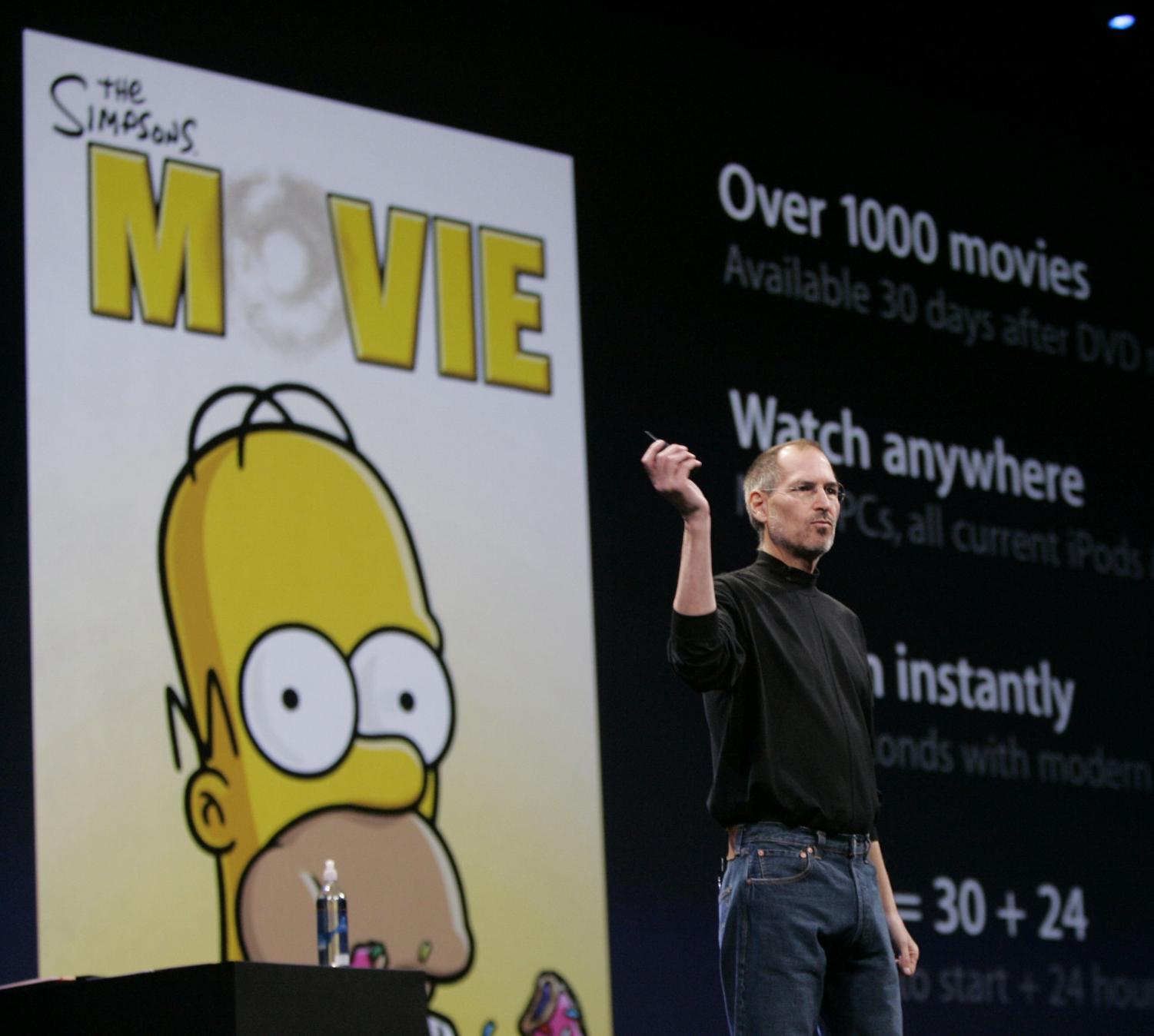SAN FRANCISCO — Apple Inc. has redoubled its effort to distribute movies online, gaining a foothold in a promising but unproven business that could eventually bolster its other core products.
The tech giant launched a movie rental service at its online iTunes Store Tuesday and won the alliances of all six major movie studios to supply content.
Under terms similar to those at other online movie providers, rental prices range from $2.99 for library titles, $3.99 for new releases, and $1 extra for high-definition versions. The movies are ready to watch almost instantly over a high-speed Internet connection, and users have a 24-hour period to watch each movie once they start it.
The service, which launched in the U.S. on Tuesday and will roll out internationally later this year, will work on Macs, Windows-based machines, iPhones, iPods or the Apple TV set-top box.
But Apple and its rivals all face the challenge of making Internet delivery easy and affordable enough to drive a massive change in the habits of the movie-watching public.
Many analysts give Apple high odds of surviving what will likely be a long, bloody battle to dominate the digital living room.
Even though Apple’s stock suffered Tuesday, some investors appeared to agree. Shares of Blockbuster Inc. plunged nearly 17 percent after Apple CEO Steve Jobs, speaking at the Macworld Conference and Expo in San Francisco, announced the new threat to the world’s largest chain of movie-rental stores.
”Movies are really a big part of people’s lives, just like music. And being able to do this on Apple’s platform is an intriguing alternative to running out to the video store or getting DVDs through your mail,” American Technology Research analyst Shaw Wu said.
Apple investors, however, seemed underwhelmed by Tuesday’s parade of product announcements, which also included an ultra-slim notebook computer called the MacBook Air and a backup storage drive dubbed Time Capsule.
Shares of Apple slipped, losing $9.74, or 5.5 percent, to close Tuesday at $169.04. They fell another 3.6 percent, to $163.01, in after-hours trading.
With millions of people already using iTunes to download music or TV shows, Apple already has a coveted customer base, Wu said.
Jobs acknowledged Apple’s first attempt to bring Internet-based video to televisions through its Apple TV device misfired. Also, iTunes previously offered movies only for purchase, racking up a mere 7 million downloads, which paled in comparison to 125 million TV shows and more than 4 billion songs downloaded.
But Jobs said competitors such as Amazon.com Inc., Netflix Inc., Blockbuster Inc. and Vudu Inc. haven’t seen much more success.
”We’ve all tried to get movies over the Internet and to the TV, and we’ve all missed,” Jobs said. ”So we’re back with Apple TV, take two.”
And rentals seem to be what people want when it comes to movies, Jobs said.
The Apple TV set-top box always could wirelessly stream videos and other multimedia from a user’s computer to a TV. But the new model shipping in two weeks will let users rent or purchase content without a computer. Apple cut the box’s price from $299 to $229 and said existing Apple TV owners could get the new features through a free software upgrade.
If Apple ends up helping shake up movie distribution the way it did music distribution, that likely will enhance its other sales as well.
”The near-term benefits are not that clear,” said Wu, the American Technology Research analyst. ”But longer term, it’ll drive people to the Apple platform, whether it’s a Mac, an iPod, an iPhone or the Apple TV.”
In its fiscal 2007, Apple earned a record $3.5 billion, up more than 75 percent from the previous year. And it sold 7 million Macs and 52 million iPods, an increase of more than 30 percent for each product line.
The rising interest in all things Apple isn’t going unnoticed even by electronics vendors accustomed to creating products for the predominant Windows world. Samsung Electronics Co. last fall launched a line of printers it sold exclusively first at Apple retail stores. And this week for the first time it is displaying its wares at Macworld.
The weeklong event in San Francisco ends Friday and is expected to draw more than 50,000 attendees.







